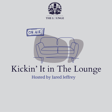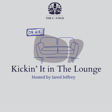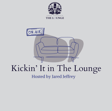Become a Creator today!Start creating today - Share your story with the world!
Start for free
00:00:00
00:00:01

Kickin' It with The Residents
In this episode of Kickin’ It in The Lounge, Jared discusses the Match and residency application process with medical residents Dr. Ayo Ibitayo, Dr. Dami Oni, and Dr. Aldwin Soumare. Tune in to hear more about their individual stories about applying for residency and how they navigated the extensive journey!
Be sure to continue to stay tuned for more of our upcoming programming being released here on The Lounge!
To share your thoughts on our discussions or if you have any questions to ask our hosts, email podcast@snma.org for a chance to be featured on the show!
Disclaimer: The opinions and views expressed on our podcast do not reflect the official stance of the Student National Medical Association.
Transcript
Introduction to the Hosts and Podcast
00:00:02
Speaker
The views expressed on this podcast represent only those of the hosts and do not represent the views of the Student National Medical Association. Welcome back listeners to Kicking It In The Lounge, the SNMA's newest lighthearted and conversational podcast, where we dive into the world of the Student National Medical Association.
Exploring the Residency Match Process
00:00:21
Speaker
Each episode features in-depth interviews with individuals and organizations affiliated with the SNMA, offering a blend of professional insights and personal stories.
Introductions of Resident Guests
00:00:31
Speaker
Join us today as we explore the match and we have a conversation with three esteemed residents and we learn a little bit about how to navigate the match from the inside.
Dami's Application Journey in Psychiatry
00:00:45
Speaker
I'm your host Jared Jeffery and I'm joined with second year, first year and a second year, a first year and a first year resident and I'll allow them to do their own introductions. So Dami, let's start with you.
00:00:59
Speaker
Well, hi everyone. I'm Dami. I am a second year psychiatry resident in Fayetteville, North Carolina um at a hospital called Cape Fear Valley um Hospital. So it's nice to meet you all. Welcome, welcome. Appreciate you. Ayo, let's go with you next. Hey guys, I'm Ayo. I'm a first year psycho resident at Griffin Memorial in Oklahoma. Yeah, I'm just happy to be here.
00:01:25
Speaker
Welcome, welcome. And I appreciate you coming to kick it. And this third one is going to be a voice you guys all know all too well. He needs no introduction. Go, go for it. Yeah, what's good, people? It's your boy, Dr. Alden Samari, aka White Co. Poppy in the building here. I'm just blessed to be here. And shout out to Jarrah. You've been holding it down, baby. Holding this part of the SMA presents the lounge podcast and doing your thing. So I'm excited to be here.
00:01:51
Speaker
learn from the two psychiatry residents here as I'm applying to psychiatry
Alden's Challenging Residency Journey
00:01:55
Speaker
right now. And I'm thankful to be in this space and be a co-facilitator of this process. So let's get it. Very nice. Very nice. Appreciate you. You always know how to game my flowers, man. You're so loved and special. But today is about you guys. Today is about the residents. So to open up, could um and I'll allow you guys to pick what order you go in. Could you please tell me about your experience with applying for residency?
00:02:24
Speaker
Don't even go first because I feel like it's more like traditional type. oh Okay. Um, so, you know, I, since I was in med school, I think 30, I've always known I wanted to apply to psychiatry. So when it was time to apply, I majority of my application was for psychiatry. So I applied to a lot of programs, um, just because I knew that was what I really wanted. So, um, and then I applied to a few family medicine programs. So,
00:02:57
Speaker
I think for psychiatry, I applied to like close to 200 programs. That's a lot. I know. Um, and then for family medicine programs, I applied to like 60 something programs. Um, and in general, I think in terms of interviews, I, from the psychiatry, um, applications, I was able to get, I believe seven interviews. And then for family member family medicine, I received six interviews as well. So yeah.
Ayo's Path to Residency
00:03:27
Speaker
Okay. Okay. Very nice. Very nice. That's impressive. You've got a lot of bread. That's a lot. I applied a 90 last year and it was already hitting 2k. They've been enjoying, I said this on a podcast before and this year they enjoyed a little less cause I applied a 50 programs. So, um, kudos to you for your dedication. And I think that's important.
00:03:47
Speaker
to like really put yourself out there because you have the resources, why not, you know, maximize your potential. Yeah, definitely. Hold on, tell us a little bit about your path to residency.
00:03:59
Speaker
Yeah, man, my path, um you know, for some that know know that don't know, it's been very complicated. You know, I i did graduate in 2022, applied in neurology, psychiatry, neuropsychiatry at the time, matching neurology, match had a program that I was in Rockwood, malignant, toxic, not a good space. Now I was in a space where I could have lost my life on some real, like when I talk about it, just begin like tight about it, you know.
00:04:23
Speaker
in certain situations, but I had to leave that and then reapplied last year, you know, and I applied to like 90 programs, had like seven interviews, unfortunately didn't match, had to go to the soap process, um got into family medicine, wanted to see what the vibes was like, realized, you know, a month in, like psychiatry is everything I wanted to do, you know, I wanted, I want to be a you know juvenile justice advocate, do childless in psychiatry, and then ah work with youth that are underserved and underprivileged in communities and do a lot of therapy-based
Understanding SOAP: Experiences and Advice
00:04:53
Speaker
focus and programming. So um reapplying this year and going through the process, got a couple of interviews, but man, oh man, this hustle is crazy. You know, networking, you feel like people tell you that they got your back. And I feel like I've been in situations where I feel really isolated, haven't felt like I felt supported the way I really needed to in this process. Because I know a lot of psychiatrists, bro. You know what I'm saying?
00:05:16
Speaker
but people out there you know everybody living their own life you know and so um you really got to dig deep and find those spaces where you can find people that love and support you it's not about the words but it's rather the actions and i'm committed to the field so god willing you know it's going to work out for me regardless uh i live with no fear i live with confidence and i'm a man of faith so god gonna get my back I like that. I like that. Oh yeah. You really came to kick it. You don't put your feet up. You don't make yourself comfortable. Yeah. We pardon today. You pardon. Okay. Okay. And Ohio put us on. Tell us about your path to residency. Yeah. So basically um applied to the match and it was 22 to 23. That was my first psych role.
00:06:05
Speaker
I applied to a lot of programs. I applied to like over 130 programs. I had like eight interviews. um And the first, I'll say like first four or five out of my list were like really solid places. And I was confident I was going to match within like, oh, that was going to match at least. I didn't know where, but at least somewhere in the in that top, in the eight. And that did not happen um to my shock and surprise.
00:06:32
Speaker
um And the question actually she is like, what happened? Like, why didn't you
Navigating Residency Application Pitfalls
00:06:35
Speaker
match? And I'll be honest, I don't know. ah Because many of these work very well. I'm very comfortable like interviewing. um And just in that kind of like setting that kind of stuff. um But it just didn't happen. Sometimes some people slip through the cracks. um But yeah, so my cousin was a big factor in kind of like setting me up for success. um She's a family medicine resident, well, family medicine doctor. um And she was basically like, um so I wasn't gonna participate in the soap necessarily cause i just like, well, actually no, I think I was, it's been ah it's been a while it's been a wild ride. So it's kind of hard to remember, but I like wanted to solve just the psych programs only. That's what it was.
00:07:22
Speaker
So I was just like, at least even if they're like low level programs, I say low level, I mean like not desirable, meaning like maybe more like it's been related or workhorse, right? Which I did not want, but I was like, at least it's still psychiatry. um That's what I was just going to do. And then she's just like, no, like try to consider, find the family medicine I am, you know, whatever, whatever. So it's like, whatever. At that point, you don't really care. It's just like, let me just try to get something.
00:07:49
Speaker
So I did that and then I was scrolling through because I think you have like, the so you have like 40 apps that they cap you got. And I was just like, Oh, okay. I've seen, I'm seeing transitional years. I had an idea. I was like, maybe I can do transitional year.
00:08:05
Speaker
And maybe they're giving me a psych program that I can rotate through. And that will like allow me to like kind of like we we reapply and have a chance in the match the next go around. So I applied. um And then I went through, I think.
00:08:21
Speaker
I think it's like my second or third round of the soap. And I got a call from the program de to um at the program that, ah obviously not her program director, but for the traditional year. And she was just like, Oh, like I heard about you. This doctor recommended you to me. I was just like, I don't know any doctor in that place. I don't know what he was talking about, but I was like, oh, OK. So funny enough, she was actually Nigerian, which is a crazy thing, because, yeah, like, at the obvious place, they have a million Nigerians. I don't know what it is, but there's a reason they love Fayetteville, North Carolina. So anyway, I accepted it, obviously. And I was excited because I found out they had a psych program, and we had, like, required psychiatry rotation, rotation built in the curriculum.
00:09:08
Speaker
And then we had up a few electives and I threw it in psychic neck. I was just like, I'm going to do psych. I want to maximize my letters. I can do, I can get right. So let's see it through. um It was really, ah I don't know the anxiety provoking. That's the phrase I would use because it was just like,
00:09:27
Speaker
I felt confident, you know, but at the same time, it's just like these people are scrutinizing you. And it's just like, you have the cloud of like, it didn't match. You're hoping to get into this program. It's very, I guess you could say humbling, because it's just like you're kind of a black sheep. It's like, everyone knows most of the transition years didn't match. Like only one person was doing DR, so radiology, which is radiology.
00:09:50
Speaker
So she was already like good to go. She was just doing her first year, like the additional year to that she had to take the box on. But for 99% of us, we didn't match. So that kind of like stigma was kind of there. It's just a terrible place to be. And like, this is kind of for like a second class citizen. And you're trying to hopefully impress and not like say the wrong thing or not say the right thing. It's just annoying. But Dami here was very, very um instrumental in making me feel comfortable in that program. Like she really stuck her neck out for me and I'll always be grateful to you, you know, for doing everything you did for me while she was there because she was obviously already in the program. She was a year, she was like a first year at the time and she introduced me to the program director. She was looking out for me, catching my mistakes, telling me like need to fix this note. This is looking like crap.
00:10:46
Speaker
She's really like a big in that kind of business role and I'll always like be careful with her. um And so yeah, I applied for the match and by God's grace, I matched at this program that Matt right now. I was actually, I rotated three as a student, the fourth year as a student and that's kind of like how I made my connection. um So yeah, just thank God.
00:11:08
Speaker
um Before we go on, I want to say thank you for being so transparent. Oh, you as well. All three of you guys. I want to thank you guys for being so transparent. um These are the stories that a lot of people don't tell. These are a lot of stories that a lot of people don't get to hear, right? We go on socials. We just see people post IMAC. Facts. And you know for for everybody that hasn't gone through the process yet,
00:11:34
Speaker
They don't really know like with the feelings, the the angst, the preparation, what goes alongside that. So before we go on, I just want to say thank you.
Unpredictability of SOAP and Insights
00:11:43
Speaker
I appreciate y'all. Alden endowy and and iyos sorry alder and Ayo, you guys both mentioned um you guys both mentioned the soap. I was going to wait to get to this a little bit later, but since you guys both mentioned it, could you dive a little bit deeper and elaborate on what exactly the soap is?
00:12:04
Speaker
So, ah I guess I could go first, but ah the soap is basically, so the the third Monday of March, everyone finds out whether or not they matched, right? And then, um and at that day, if you didn't match, you go through a process called the soap. So it's kind of, it used to be called the scramble. So essentially you log on and tells you how you did not match and how you're available to apply to, you know, residency programs that didn't fill their residency spots.
00:12:32
Speaker
Oftentimes that that is in residency programs that like I'll said, maybe less desirable, maybe a field that's less desirable. And no, no, I'm not throwing any shots to any fields. But this last year, it was a lot of spots, for instance, in emergency medicine. They had, I think, like 550 some spots or something like that. um And then they had family medicine. There's a couple of psychiatry spots that you could open. I think it was like seven or eight. Actually, one of them I rotated in.
00:12:58
Speaker
as well. Typically, it's one of those three or four fields running pediatrics and stuff like that. So you put your application in, and on my behalf, what I did is kind of similar to IO. I was like, I'm still psychiatry. I ain't going to hold you up. I sent personal statements psychiatry. I sent all my letters in psychiatry. I applied to EM and family medicine. I wasn't interested in IM at all.
00:13:23
Speaker
You know what I mean? I wish I had done transitional year. Nah, just be honest. Like you feel like I was like, all right, maybe I could go another route. But yeah, you know what I mean? Like just keeping it bucked. Shout out to I.M. has been shot. But anyway, so I did. I went through like the first two days. I got like two interview offers. I think it was the program and.
00:13:45
Speaker
Pennsylvania and then another program in the Bronx and emergency medicine. And I was kind of hype because I was like, initially, when I didn't match, I was tight, bro. Like if you don't like, I was going to crash out. You know what I'm saying? Because I put a mad work, bro, like I put a mad work on a conference is networking, like talking to psychiatrists, like I even won an award for organization for leadership and all these kind of things in psychiatry.
00:14:12
Speaker
and research and all this kind of stuff. But I realized like I had to start somewhere. i mean like I left my previous program and I needed to start somewhere where I could fulfill my dreams again. And maybe that would have been in a different field.
00:14:26
Speaker
You know, so I had to give myself a shot, a chance. Cause that last year before it was like, well, I was going to do times of like being broke, not having bread. Like even on this podcast, I even tell y'all like there was times where even doing a podcast, y'all like gave me life. You know what I mean? Like I was sitting after have like before episodes, like doing episodes, I'll be sitting there like, oh, bro, my life is like, I'm whack. You know what I'm saying? Like,
00:14:51
Speaker
I felt like I was talking about like a second class citizen. I felt like the third, fourth class citizen, because I'm seeing my classmates that I graduated with going through residency. You've seen, it like you said, the photos of people getting through. And I'm sitting here like, I can't even practice medicine. I'm working at nonprofit clinics. I'm doing case management work. I'm doing ah teaching. And I'm in these spaces where like, you're a doctor. Like, what are you doing? I remember one time there was a nurse practitioner that seemed like she was like, I heard you a doctor. Like, what are you doing here? You you good?
00:15:20
Speaker
Like literally said, are you all right? And I was like, bro, now I got to get back to it. You know what I'm saying? So that that reminds me that going through the soap, that's also like, yo I had just got to get back to it. You know, so I went through the whole round and everything that I got a third interview on Thursday as well. And it's crazy because you never know what this process like when they don't hit you up.
00:15:39
Speaker
or whatever. They could hit you up. You could be at work like 9 a.m. So you always got to have your phone with you on deck. It's not like the standard match process. You know what I'm saying? They may not even email you and then they might be like, yo, we're going to interview you in 30 minutes. Are you available? so Oh, for real? Yeah. And you drop everything, bro. Like you literally drop everything. You hop on that interview and each of them, maybe like 10, 15 minutes.
00:16:01
Speaker
versus like the interviews for match. Um, they usually like three, four hours long. You know what I mean? So they get very short time to get, to know you know, because everybody trying to get to their position and get people that they want. But anyway, so, uh, let me hear it. So I ended up so open at the spot that I'm currently at in Cassville, Tennessee. And the program, it was on the last day on Thursday, because it can be multiple rounds. If you don't hear on Tuesday and Wednesday, it's a wrap. Like usually, but Thursday should hit me up by like three 30 at 5 p.m. I believe on Thursday is like,
00:16:30
Speaker
When the soap ends and then you got to like do the scramble like so you got in just so you got in just under the wire Yeah, I just got in in the wire. So, you know that that worked out from that perspective, but it was a crazy process You know, I don't want to I'll let I'll do his thing. I'm sorry. It's like go go go to in depth But you know my bad do you think buddy?
00:16:48
Speaker
No, no, you basically covered it. is You said it very well. It's very like much more unpredictable compared to the match because just like you don't know who you're going to like. Because I did, even though I sold them to see y i applied to STY FM and IM, I was just like, I just need to get something. get I can't just be unemployed for because There's loads to be picked. So it just like you just have to take one foot, take one step forward. So um yeah, and just the same thing, got a call. And I was just like, who is this? Because I didn't know what was going on. And then after I heard it, I was like, what? OK. So yeah, that's just how it happened to me. It's just like out of nowhere. And in God's grace, that was like my stepping stone to where I am right now. So yeah.
00:17:39
Speaker
Very nice, very nice. um Thank you guys. ah So from what I understand, the soap is a means for programs that didn't fill all their spots to match your candidates that didn't get a spot. Did I i get that right? Yes, sir.
00:17:54
Speaker
Cool, cool, cool. So, um, now that we have like, you know, we got the match, we got, you know, the the fallback process. When, could you tell us, could you guys tell us a little bit of like some common pitfalls of the match and applying to residency? Like what is some common like, Oh, absolutely. Yeah. Don't do that. Don't do that. You're going to slash your chances. Like what are some like very, very common ones? Um,
00:18:22
Speaker
I'll say for me, one thing's important.
Avoiding Match Pitfalls: Personal Insights
00:18:26
Speaker
um In terms of, so I'll start from application. um Make sure you have good letters. Make sure you have a very good personal statement.
00:18:36
Speaker
um That's like something that you should always do. And lastly, I would say when you go to your interviews, just be yourself. For me, that was one thing that I feel like helped me. I was just myself because if you fake who you are and you're not the person that you are, then Remember, this is going to determine where you're going to spend the next three, four, five whatsoever years of training. This is where you're going to be at. And the program is trying to see if you are a good match for them the same way you're trying to figure out if you um so yeah, they're saying if you're a good match for them the same way you're trying to figure out are they a good match for you. So the best thing you can do for yourself is just be yourself. And for me,
00:19:21
Speaker
During my interview process, like when I talked to different people, that was just what I was. Just myself, total me, undiluted me, obviously like the professional you. But just be yourself, know what you're looking for in a program. um Like, for me, that was very important. um So question Domi.
00:19:42
Speaker
um when so So you're being yourself in these interviews and you know I feel like some places it's going to mesh well and some places it doesn't mesh well. Could you tell during an interview like, eh, I thought I liked this place, but like I'm getting a little bit of a different vibe now. Is is that something you experienced?
00:20:03
Speaker
Yeah, so I would say going into each interview, you know, obviously you're gonna meet the different, um like the program director, different people, the faculty members, you're gonna meet um current residents in the program. Like we're all human beings, like some part of me needs to be able to connect to the next part, human being. If you're not really connecting with the next human being the way you should, or you know, your spirit just doesn't feel right,
00:20:33
Speaker
I mean, that's, that's, that's a red flag and you should, don't ignore the red flag because, oh, I want to go to this particular program. Like do not ignore the red flag. Follow how you feel. This program has a prestigious name though. Yeah, I know. Just follow how you feel. Like don't go with, oh yeah, you know, it's a better program because for me, so I'm originally from New York city and I wanted to match in a place. Yeah. New York, New York.
00:21:03
Speaker
I wanted to match close to home, but then I remember one of the programs, they wanted us to do a writing exercise during the interview. So to me, that already means like, wow, this is like, I don't think I want to be here because it just already tells me that they're just very extreme. Like they just need to be done. for because obviously everyone is anxious there's so much pressure and now you want me to do a writing in exercise during the interview and respond to a video like i'm already anxious so those are things that i looked out for um the program that i matched at now like i remember my interview with my program director
00:21:44
Speaker
He straight up told me, like, yes, we like you, you have good grades, you have this, you have that. I'm just going to be very transparent with you. This is the kind of program that we have. um I'm in North Carolina. He said, we're not Duke, we're not UNC. So you know. But you know, we're we're not perfect, but we're trying to be better.
00:22:04
Speaker
um So for me, that was all I needed. It's like, if you can keep it real with me, then we're good.
Effective Program Research and Networking
00:22:14
Speaker
But Nigerians, but not in my program. okay And it was very obvious when I looked at the profile on like, my program has never had a person of color.
00:22:24
Speaker
and ever oh wow who oh I was applying like I was a little hesitant about that. Like, um, fucking anybody that looks like me. So that was something, you know, he's straight up. He also mentioned that to me. And so I respected that because it's like, yeah, we need more diversity and we don't have it. ah So I just really appreciated him being real. And for me, that was what sold the program to me. Very nice. Very nice. a What about you?
00:22:56
Speaker
Um, please repeat the question. ah was like my what on the scene what are some common pitfalls that you yes impulses before us Okay. yes So this is just like a broad thing. Honestly, I've seen it happen a million times over the years because I'm very like.
00:23:12
Speaker
I'm the kind of person that's very obsessive with stuff I'm into. So like I'll follow like the med school thing, the residency thing, all that kind of stuff and see what kind of people are doing, where they went right, where they went wrong. And one thing that always comes up is people that don't apply to enough programs. like People will under apply.
00:23:30
Speaker
Okay. Fair enough. Maybe you're restricted geographically, but there are a lot of people that they're not restricted. They just like, Oh, I just want to be at least top 30 or whatever kind of reason they have. Right. What does, what does underapplying look like? Underapplying like, let's just, you have dumy you know, who applied to 200 programs. Yeah. Yeah. You have to have all the way that applied to 90.
00:23:52
Speaker
Yeah, yeah, yeah. You have to know your level. Yeah, yeah, yeah. What does, like, at least at least safe? What does safe look like? So it's relative to which school you're from, your app and everything. So if you're, I don't know, from Harvard, you can afford to apply to, like, 15, 15, five crayons. You can go to school for nights, right? You know.
00:24:19
Speaker
Well, for those of us that are like Caribbean because we had done we're both from the Caribbean, right? To overplot like any number they tell you apply more than that. If you have the funds, like take the money out because the match is unforgiving. Like it's better to be dead with credit card or whatever, whatever.
00:24:38
Speaker
than to not be having a job as ah like as a physician. like It's so worth it. You can always pay that thing off later. you get So yeah, that's what I recommend. um If you're a USMV, plan a site, you can get away with maybe $40 or $50. I mean, no coping on this, but I'm just throwing ballpark off the top of my head. USMV, maybe $60 to $70. If you're a Caribbean, $100 plus. You need to get those. I'll just tell myself.
00:25:08
Speaker
So yeah, you know, I'm um'm I'm actually glad you mentioned the Caribbean. So I have a lot of friends at international medical schools and the number one thing that they all say, oh, yeah, I got to be at the top of my program so that I'm at least competitive when it comes to the match. Oh, yeah, I need like the highest grades. I need the highest is the highest that my have to be outstanding in order for me to even get like sniffed on during the match.
00:25:34
Speaker
Is there any accuracy towards that? And if there is, do you guys know of anything that an international medical student might be able to do to ah be more competitive?
00:25:48
Speaker
um um go for Yeah, I would say your scores matter. Um, one thing before saying that, actually, I would say you have to be real with yourself. You know what your grades look like. You know what your journey has been like, yeah, people will give you like, Oh yeah, that's what you should do. But if you know deep down inside of yourself, like you that your journey, your picture does not look like their picture, then don't follow so closely what they're suggesting. So for example, and you know, I'm hearing you guys talk about match, but for me, I felt like in my old medical journey, match was probably the easiest for me. But that's because I've had a very challenging time in medical school.
00:26:34
Speaker
so I always say in life, everyone's challenges look different. And, you know, God just does it that way. That's just how he is. And he does it how he wants to. For me, my challenging time was in medical school. Medical school was super difficult. Like, yeah, we all know it's hard, but it was extremely difficult for me. you know, um' taking time off to study for my board exam, taking much longer to study for it. um So that was where my hiccups were. So I knew that going into match, there were going to be programs I was applying to that I wasn't going to be their ideal candidate because it took me longer to finish medical school. So I knew that. So for me, that was like a big thing for me. So it's important to be aware of that. So if you know you've taken much longer in medical school, there's
00:27:21
Speaker
and everyone is saying, oh, as a Caribbean grad, apply 100. Knowing what your profile looks like, then maybe you need to apply for a little bit more than 100. Just be real with yourself. So like for me,
00:27:34
Speaker
good grades, just knowing how many programs to apply to. Honestly, I wasn't the type to really go to conferences. It's just not my
Support Systems and Overcoming Challenges
00:27:42
Speaker
thing. I'm trying to get in the habit of doing that, but I didn't do that. I've never been to a conference. I'm not saying it's not going to help, but I'm sure you can network in those places. For example, like on my LinkedIn, when it was time to like applications open, someone, this guy actually reached out to me on LinkedIn.
00:28:00
Speaker
and said, Hey, I'm going to be applying to your program. Do you mind mentioning my name? And I gladly did that. Um, so it's like, for me, I just feel like God brought me to this place and has brought me in this far. The best that I can do, the easiest thing for me to do is be kind to others. And that's why it's like, when I, uh, at my hospital, when you're a transition new year, people kind of look down on you. Like everyone knows that.
00:28:24
Speaker
But then one thing I always try to remind my co-residents, like, okay, well, nobody wants to be in this position. And people are trend you know in a transitional year program for different reasons. You don't know why. Some of them are even smarter than you are. So who let's not get that. Let's not forget that. Because it's like people just want to treat them and talk about them just anyhow. And I felt i feel like in my program, I'm always that person who stands up ah for the transitional year. um It's important for us to stand up for each other and just say like, well, this is...
00:29:14
Speaker
you have to spend money, be okay with spending the money. um Even though I know like finances might be difficult for some people more than others, but then in places like your essay, that's, it makes sense to spend the money there. So you're conveying your point to others. So yeah.
00:29:32
Speaker
Very nice. Very nice.
Advocacy and Mentorship in Residency
00:29:34
Speaker
Um, you know, the vibe that I was getting while you was giving an answer. This is not the the answer that you get from a casual classmate, you know? Your casual classmate is going to say, oh man, you got it. It'll be okay. Oh yeah, man, fox grades is fine. Apply, apply to a couple. No, this this this ain't that.
00:29:58
Speaker
You got to be real with yourself. You have to really look at your entire profile, your entire application and say, okay, what do I need to do to succeed? How do I give myself the best chances of at least landing somewhere? I like that. I like that a lot. I like that a lot. So, um, let's switch gears a little bit.
00:30:19
Speaker
and take it backwards now to the point where it's time to shop around for programs. So you guys, you know what specialty you want to go into. You know, like that's what you want to do. You're getting ready to, um, I don't know at what point you guys pick, you know, I'm, I'm a lowly pre-med so y'all could put me on. oh whenever the time is to to shop around Whenever the time is to shop around, how do you guys shop around and what are some tips that you have to potentially shop around more effectively?
00:30:53
Speaker
Yeah. So I'll say that number one thing, extremely important is to figure out what your values are. What is the most important to you? For some people it's lifestyle. Like I want a psych program that has no call or barely in call. Some people are like, no, I want to work hard, be the best psychiatrist I can be. It doesn't matter on what you value.
00:31:15
Speaker
figure those two, three, four points out, whichever, you know, whatever they are, the way it's set up, the way they they put their websites out, they don't really give you the answer to to a lot of these fundamental questions. So you have to, just the only thing you need is to figure out this information, because this is going to be your life for the next four years, or not only with specialty, however many years, right? So the best thing to do is to talk to the people that are actually in the position that you might be after this cycle, which is the resonance. So how do you get the information? You can literally ask the coordinator, can I have the email contact of one resonance or two resonance? And, you know, if it's a good program, they will hopefully be willing to talk to you and give you the real, you know, um so you can really come to a real, well ah-informed decision. Because like I said, this is four years of your life and you're in ah
00:32:09
Speaker
I don't want to say powerless, but relatively powerless position as a resident. You don't finish your your your residency, you're finished. So yeah. Got you. Got you. Anybody else? Yeah. So I would say um for me, so I applied to a lot of programs, but then one the biggest thing for me was location.
00:32:32
Speaker
i'm From New York City, even though I wanted to be close to home, so like the programs that were closer to um yeah so the interviews that I got closer to home or like the programs that I matched at um that i interviewed that are closer to home, I ranked those programs first. The next thing was the weather.
00:32:53
Speaker
Like I knew very well I did not want to end up in Wisconsin and I knew very well I did not want to be in Michigan or Chicago. I just knew because I know that how I feel when it's cold and it's not going to tie this into mental health. Like those are your values. Yeah. Even though effective disorder affects you when it's cold too. Yeah. Like, so it's like, if you're cold, like I'm not going to want to get out of bed or if it's like super dark outside and there's no sun, like that's going to affect me. So those things were important during interviews, the questions that I asked, I asked the residents, well, I never emailed anyone to ask more questions. I really did not, because sometimes I always tell it, even this, I would tell people who are doing fourth year of medical school and choosing electives and the way rotations, be careful with that because people can't use something against you if they don't know about it.
00:33:42
Speaker
yeah So if they don't know you like that, they can there's nothing to use against you. So if you're going and doing a way rotation and you're doing a sub internship and because you want to match there, chances are they'll find things they'll use against you. So be careful about that. One question that I would suggest asking is, I asked everybody that interviewed me this, there if there were three things you can change about your program, what would it be? And trust me, that's how I found out stuff about the program.
00:34:11
Speaker
wow exactly like that's it yes question if they're because people like if it's just one you can kind of give me a whatever but then once i'm actually you three things you can change about your program then things are really going to fall out that i should know and then for me it was like oh does this program have 24-hour call shifts I didn't want to program with 24 hour call shifts. So like my program, we don't do 24 hour calls. We don't do overnight shifts. We don't do night call. Like you take calls from home. You don't have to come in. So for me, that was important. So yeah. So those are things that I was looking for.
00:34:47
Speaker
Y'all making me cry right now. That sound like heaven right there. I know y'all living just cause then like, oh sure what do you need? And then we have epic on our phones. I can make the orders at home. So I got a question. I got a question for y'all, you know, um,
00:35:14
Speaker
I want to you know shout out to you, Dami, because I love that you bring that story with the individual who who hit you up on LinkedIn and you put them on to your program because I think that's important. Advocacy and IO, you mentioned that too, like being in a position where it's about who you know and how they can help reinforce.
00:35:29
Speaker
you as a person cuz sometimes you see the app they see the name and that's all they know right but when they could put a face to a name they could put challenges how they persevered the results etc then i could kinda you know step you up to the plate to be able to get an interview.
00:35:45
Speaker
Um, you know, we know that less than 2% of psychiatrists are black, but I think that, you know, as I, you know, I've had a multitude of experiences with this. I think that we don't put on for each other as much as we need to. And that's why I want to like shout you out, you know, down me for that, because I've been in spaces and encountered people where it's like, yo, I know you, I know you could put me on. I know you could possibly help me out, but it just be crickets.
00:36:08
Speaker
And we see this happen all the time. People put people, LeBron put his son on and we know he ain't valid enough on the court. You know what I mean? I know individuals that their father was a chair of a program and they got on to that. He deserved that straight. I'm just saying you got to keep it 100. Shout out to Bronny, though, bro. I'm proud of you, but it is to keep it a bean. Keep it a
Mentorship's Positive Impact
00:36:29
Speaker
buck. But I want to ask, what role do you and just people of color, black people in general, play in helping to change that dynamic and that disparity that we're facing. ah Because we've seen different other communities, they'd be putting on for real. I don't see the communities, but I will say that in my experiences and in general, across the board, especially in medicine, um people, they just move like it's crickets out here. And it's very rare to select few individuals that really try to put on
00:37:00
Speaker
and Push people to the pipeline if you want to say we want diversity one more black men and women in psychiatry then I think that there should be initiative toward that it shouldn't just be performative and I feel like a lot of places are Performative and not really about that as much as they need to in my personal opinion. So what do you guys think about that? So for me I think
00:37:23
Speaker
I think it just comes down to like what you value. If you're in that position and you value that like Dami has obviously, she did it for me, me too. I like that a lot cause I have done my own, um i guess I guess you call it play my own part in this um where I value kind of like trying to pull people up kind of to see where you are. um You have to kind of like take that first step like as in,
00:37:51
Speaker
it's hard it's pun and this is It's hard for people that are trying to get where you are to reach out to you. So if you can see that, you know, there's something they need help. I'm good at this area. I have this expertise. Reach out to them first.
00:38:04
Speaker
I'm sure they'll be extremely happy that you thought of them and kind of took the first step, you know? Because I've done that in in my own, you know, ah recently, um kind of in this cycle, you know, because I love to like kind of help, that kind of should be like help people that look like me to kind of reach where they're trying to get to. So yeah, I would say just take that first step if you are kind of in the mentorship youre or in the mentor role or the sponsor role. um I would say um for me, it's just,
00:38:34
Speaker
Just like I mentioned, I had a very hard and difficult experience getting through medical school. And I feel like I was able to get through because I worked hard, but not only because I worked hard. My mother's prayers. She prayed so hard. So for me, it was just like, OK, this is the will of God. um And I know that I got here because God wanted me to be here. So I don't let my position get into my head or like whatever.
00:39:04
Speaker
So one thing I always tell myself is, and I look at things this way, what makes me different from the person who's cleaning, who is my age and is a cleaner at the hospital or somebody who's my age and a janitor at the hospital? yeah You know, it's just like, there's not, maybe I had a few more opportunities that they didn't have. So if I find myself Like I'm sure I've seen people who didn't match who are smarter, more intelligent, better than I am, and they did not match. So if I can help them, then what is it really going to cost me to help them?
Final Advice for Residency Applicants
00:39:37
Speaker
But then like for me, I think, you know, I would suggest for people applying and if you're reaching out for somebody to help, then you also have to have done the work.
00:39:45
Speaker
yeah I absolutely do not like helping anybody or someone who did not do the work. So like, for example, when I met Ayo, I knew Ayo like he really wanted to do psychiatry. I think Ayo introduced himself to me first at Walgreens. It was just like, oh, I think I saw you at orientation.
00:40:19
Speaker
guy who reached out to me on LinkedIn, he came across correct. Because at the end of the day, if I'm sticking out my head head for you, you need to tell me that you can't go and mess this up for me or anybody else. So as long as you come correct, or let's say, I remember one time I was supposed to have a conversation with someone and the person, we set a time, but she was expecting me to call her.
00:40:45
Speaker
And so I was waiting, waiting. So it's like at the end of the day, to me that just tells me something and that's all I needed to know. So it's just like really small things. Exactly. And I think I spoke to the person about it, but I think she didn't quite understand why she was in the wrong in a situation like that. So it's just like, okay, well, maybe you would learn.
00:41:08
Speaker
ba
00:41:15
Speaker
So yeah, it really just all depends. Just always give people grace, be kind. And like when I interview one last time, when I interview, I told them they always look for, do you have any tie to the place that you're applying to? So like for me, and my friend, one of my college roommates lives in Fayetteville, North Carolina.
00:41:33
Speaker
So I was just like, you know, she's I have a friend here. She has a church community that I can join. um So this I visited before I made a few friends in there and I'm going to stay. I always tell every program you're going to stay. So, yeah, oh that's.
00:41:48
Speaker
that that what yeah that's that That's a little jump for the road, right? Tell them you're going to stay. and You're going to practice. I don't intend to stay and yeah practice in that area. Okay.
Mental Health Importance for Medical Professionals
00:42:00
Speaker
Okay. Okay. I like this. I like this. um
00:42:05
Speaker
I appreciate you guys. You guys really came and dropped the rail of the rail. I've had a lot of residency conversations, residency conversations, none like this. um You guys did not mince words. You guys did not sugarcoat nothing and you guys didn't ah withhold anything either. I think this was an absolutely powerful conversation about residency. And can can I take one moment? I will never try to perpetuate a stereotype. However, I must say that you know ah the previous generation used to say how African parents didn't believe in mental health. And now we have three doctors of African descent that are that are practicing psychiatry. I don't know. I think the next generation is in great hands. What what do you guys say?
00:42:58
Speaker
I agree. I completely agree. like my mom like When I told my dad I wanted to do psychiatry, he was like, what?
00:43:07
Speaker
okay like one um yeah right Mental health is very important. Even as a doctor, um as a physician myself, like I don't take my mental health lightly at all. um Always remember medicine is just your job.
00:43:25
Speaker
but you have a life outside of that. like For example, like when I'm not working, I like to get my hair done, I get my nails done, I get my eyelashes done. like I still need to remind myself that, man, like you still got it. um so It's very important dr glady i see you yeah like you know it's very very important to me. um have a therapist, like, you know, even other resident, like, I remember the first time I told my mom, I wanted to talk to a therapist or like, you know, a counselor. She was just like, no, just pray about it. I'm just like, no, mom, I'm just not praying about it. And then when I did, it was, she was just shocked. Like it gives you so much clarity. So like in the midst of this, it's a lot applying, but always remember if you need to talk to a therapist, Like you don't have to be on meds to want to talk. um So they're talk to someone that can help you just get whatever is on your mind off of it. And we'll, we'll assure you and push you back up. So yeah.
Closing Thoughts on Psychiatry's Future
00:44:22
Speaker
I think that's a fire for us to leave on. I appreciate the three of you for coming out. IO Domi and Aldwin, Dr. Aldwin white coat, poppy underscore. deal Yeah. oh
00:44:38
Speaker
I appreciate you guys for kicking it in a lounge. ah Be sure, for our listeners, be sure to follow the SNMA on all social media platforms. And thank you guys for listening. We'll see you in the next one. Bye.
00:44:56
Speaker
alright










